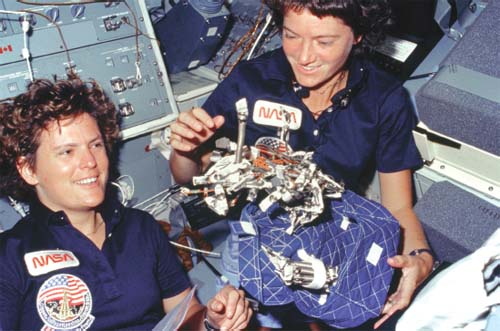Life in the UniverseLiving in Space |
What happens to the human body in space? |
In orbit or in deep space, humans are weightless; that is, the net force on their bodies from gravity is zero. This is not because they are far away from Earth, but rather their orbital speed and trajectory create acceleration that exactly balances Earth’s gravitational acceleration. Since humans evolved in an environment where gravity is not zero, our biological systems react significantly to the zero-gravity or micro-gravity environment. Bodily fluids like blood fill the face, puffing up the skin; muscle fibers grow thinner with disuse, causing muscles to weaken and atrophy; the mineral turn-over process slows down in bones, causing a decrease in bone density akin to osteoporosis. Thus, when people are in space for any prolonged period of time they must conduct rigorous physical activity and exercises in order to stay healthy.

Many adjustments have to be made for humans to live in a zero-gravity environment. Here, space shuttle astronauts Kathryn Sullivan (left) and Sally Ride show the velcro and bungee cord restraints used to keep people from floating away as they sleep. (NASA)
